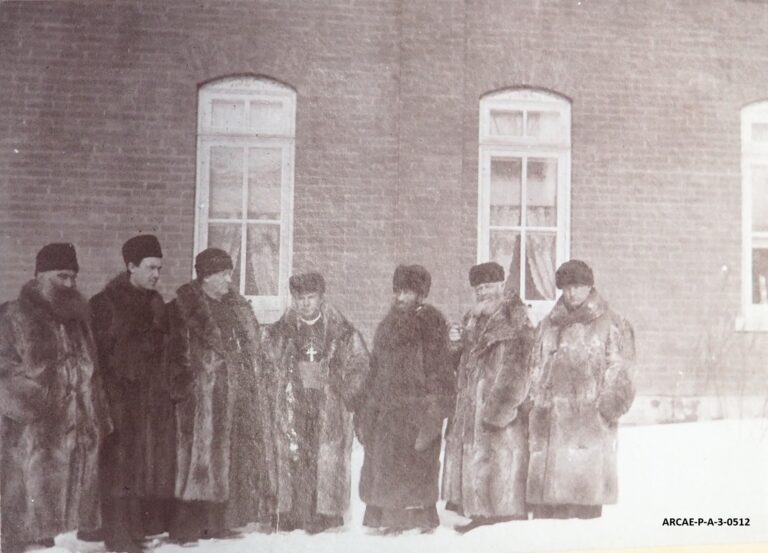As you spend time in nature this summer, you may notice the various types of beauty that exist. You can see different types of flowers, trees, birds, animals, fields, grasses, hills, mountains, sun sets or sun rises, changes in the moon, or the sky. You may be reminded of how God created the heavens, the earth, animals, and human beings, and declared that it was good and even very good (see Genesis 1: 1-31).
 St. Thérèse of Lisieux, a 19th-century French Carmelite nun who died at age 24 and is a Doctor of the Church, made the observation that, “Jesus deigned to teach me this mystery. He set before me the book of nature; I understood how all the flowers He has created are beautiful, how the splendor of the rose and the whiteness of the Lily do not take away the perfume of the little violet or the delightful simplicity of the daisy. I understood that if all flowers wanted to be roses, nature would lose her springtime beauty, and the fields would no longer be decked out with little wild flowers. And so it is in the world of souls, Jesus’ garden. He willed to create great souls comparable to Lilies and roses, but He has created smaller ones and these must be content to be daisies or violets destined to give joy to God’s glances when He looks down at his feet. […] It is to their hearts that God deigns to lower Himself. These are the wild flowers whose simplicity attracts Him. When coming down in this way, God manifests His infinite grandeur.”[1]
St. Thérèse of Lisieux, a 19th-century French Carmelite nun who died at age 24 and is a Doctor of the Church, made the observation that, “Jesus deigned to teach me this mystery. He set before me the book of nature; I understood how all the flowers He has created are beautiful, how the splendor of the rose and the whiteness of the Lily do not take away the perfume of the little violet or the delightful simplicity of the daisy. I understood that if all flowers wanted to be roses, nature would lose her springtime beauty, and the fields would no longer be decked out with little wild flowers. And so it is in the world of souls, Jesus’ garden. He willed to create great souls comparable to Lilies and roses, but He has created smaller ones and these must be content to be daisies or violets destined to give joy to God’s glances when He looks down at his feet. […] It is to their hearts that God deigns to lower Himself. These are the wild flowers whose simplicity attracts Him. When coming down in this way, God manifests His infinite grandeur.”[1]
Service to Marriage and Family is one of the three Pastoral Priorities of the Archdiocese that guide us as a synodal and pastoral Church. How can you take St. Thérèse’s insights and apply them to your marriage?
St. Thérèse identified the positive qualities of different types of flowers. She noticed the beauty of the rose’s splendour, the whiteness of the lily, the lovely scent of a violet, and the delightfulness of the daisy.[2] She appreciated the different qualities of these flowers and noticed how God works through little and great souls in different ways.
Sometimes you may have expectations of what should be beautiful or great. You may also see the qualities of your spouse who you know intimately, including their faults and good traits, and compare them to other people whom you probably only see from the outside. It is important to remember that your spouse is unique and special in the ways God created them to be.
Within marriage, it is helpful to develop an ongoing sense of appreciation for each other. Dr. John Gottman, a world-renown psychologist and marriage researcher, suggests that you “notice what your partner is doing right. Catch your partner in the act of doing good stuff!”[3] to establish a culture of appreciation.” Other ideas for building a culture of appreciation can be found in this short article here.
 Here are some questions that you and your spouse may choose to discuss with each other. You could be present in nature within your home, in your yard, go for a picnic, go for a hike, visit a park, or go to a favourite or new outdoor location to discuss these questions.
Here are some questions that you and your spouse may choose to discuss with each other. You could be present in nature within your home, in your yard, go for a picnic, go for a hike, visit a park, or go to a favourite or new outdoor location to discuss these questions.
- As you spend time in nature this summer, what different types of beauty do each of you identify? Does the beauty you see remind you of a special time in your past, such as in your relationship or in your childhood?
- How do you each define beauty? What aspects of your marriage do you find beautiful?
- Without comparing your spouse to others, what are some of the unique qualities you appreciate about each other? These qualities could be related to faith, intelligence, physical attributes, personality, emotional strengths, interests, or parenting.
- What do you enjoy doing with each other, especially throughout the summer? What was a favourite summer date you enjoyed going on? What would you like to do together during the remainder of this season?
- How can you see God’s love for you through each other, your family, friends, community, and in His creation?
What do you take away from St. Thérèse’s quote above?
As you are in nature with your spouse, may you also take this opportunity to pray together by thanking God for the beauty of His creation around you and the presence of your spouse, along with some of the qualities you appreciate in them. This prayer could be as simple as each of you saying,
“Thank you for (spouse’ s name) who is (state something you are grateful for about your spouse) and (state something else you are grateful for about your spouse). Say the following together: Please be with us and guide us as we strive to love You and each other in a deeper way.”[4] Amen.
During the summer months, may you take the time to contemplate the beauty of God’s creation, and how God uniquely created you and your spouse. May this be an opportunity for you to enjoy the time you are able to spend outside, and to have a little more appreciation for your spouse and of how “God manifests His infinite grandeur.”[5]
– Melissa Guzik is a registered psychologist in the Greater Edmonton area. She is the co-author of the Catholic marriage preparation and enrichment book and workbook To Know, Love, and Serve: A Path to Marital Fulfilment: 2nd Edition. Information about Melissa’s private practice can be found at www.melisssaguzik.com




